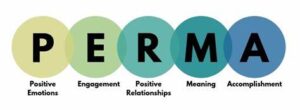Conquering the Insidious Power of Procrastination
John took a deep breath as he stared at the blank page on his computer screen. He’d been putting off starting this project report for days. He glanced out the window where golden autumn light filtered through crimson leaves…then forced his gaze back to the cursor blinking impatiently.
The work wouldn’t complete itself. And John knew delivering this report was critical if he wanted to earn that promotion. But the vast task overwhelmed him. Just contemplating the scope sapped his motivation.
Like John, we’ve all felt procrastination’s clutches squeezing the productivity from our day. Endlessly hitting snooze on important tasks, finding excuses to delay the unavoidable as hours turn to days. But why? What truth lurks in our psyche enabling procrastination to strangle good intentions?
By illuminating what holds us back, we can break free of this insidious phenomenon and direct our time with intention once more. Let’s explore procrastination’s prime instigators and equip ourselves with tactics to conquer them for good.
Fear Breeds Avoidance
For many, procrastination stems from fear – fear of failure, uncertainty, imperfection. We delay starting projects to stave off potential shame or judgment over an inadequate effort. But putting something off doesn’t make it disappear. It only allows anxiety to mount.
John avoided his report to escape the rejection he imagined would meet a lackluster first draft. But progress necessitates imperfection. Fleeing from challenges breeds stagnation, while engaging them builds skill and confidence. Each step forward conquers fear and strengthens self-assurance.
According to psychologist Ellen Hendriksen, we often procrastinate to avoid the discomfort of anxiety-provoking tasks. Fears of failure or looking incompetent drive us to delay. But as Hendriksen notes, putting off a task for the sake of feeling good now almost always makes us feel worse in the long run. Confronting challenges head on is the only way to grow.
Specifically, common fears that fuel procrastination include:
- Losing control over our time and priorities if we comply with external demands. This can lead us to delay tasks requested by others. We resist letting someone else dictate what we must do and when (Tice & Baumeister, 1997).
- Being judged for poor performance. To avoid criticism, we put off evaluative tasks like exams or projects that will be graded (Ferrari, 1992).
- Missing out on leisure time and fun activities. We resent obligations that restrict our freedom to do as we please (Pychyl & Flett, 2012).
- Facing our own self-judgment and shame if we underperform. We seek to avoid the self-criticism that may come with a subpar effort (Fee & Tangney, 2000).
To vanquish fear-based procrastination:
- Reframe external demands as personal choices rather than obligations forced upon you. Say “I choose to do this” instead of “I have to.”
- Forgive yourself for any mistakes or imperfections. Progress requires taking risks and making missteps at times.
- Schedule rewarding free time in advance so you have something to look forward to. Fun shouldn’t depend on getting everything done.
- Adopt a self-compassionate inner voice to replace your inner critic. Be your own cheerleader.
With insight into fear’s triggers and tactics to overcome them, you can break its paralyzing grip for good. Though progress may feel scary, it builds competence to conquer apprehension.
The Pitfalls of Perfectionism
For perfectionists, potential failure darkens any joy in learning. “I must get this flawless on the first try” soon becomes “I’m clearly not ready.” Days slip away awaiting that elusive moment when conditions seem perfectly certain and free of risk.
But that moment never arrives. Perfectionism is rooted in fear of the imperfections and missteps that accompany growth. The desire for competence becomes distorted into demanding faultlessness (Flett, Hewitt, & Dyck, 1989).
Psychologist Brené Brown notes the dangers perfectionism poses to creativity and connection. “Perfectionism is self-destructive simply because there’s no such thing as perfect.” Demanding it only leads to relentless dissatisfaction. Ironically, putting something off doesn’t make it turn out flawless – taking action is the only path to excellence.
Research shows perfectionism goes hand in hand with procrastination, especially on meaningful projects like applying for college or starting a business (Flett, Blankstein, Hewitt, & Koledin, 1992). Unrealistic standards breed fear and self-doubt, causing delays. The profound angst of falling short overshadows any rewards from progress.
To temper perfectionism:
- Develop awareness of perfectionistic thoughts and reframe them. “Good enough for now” beats endless tweaking.
- Focus on the process rather than the outcome. Finding flow feels better than demanding flawlessness.
- Avoid comparing yourself to others. Run your own race.
- Remember tasks can be improved later. Done on time trumps perfect.
With compassion for our shared humanity and appreciation for gradual gains, we can quiet perfectionism’s harsh demands and reclaim satisfaction in our work.
Silencing the Inner Critic
As John stared at his blank screen, an inner critic scolded him for not starting promptly. Its harsh self-talk fueled his hesitation instead of overcoming it:
“You should be halfway done by now…”
“Your first draft will be terrible…”
“Don’t take a break until it’s perfect.”
John had recently been journaling about his procrastination and discouraging self-talk since it was something that he felt was hurting his well-being. By writing these situations and thoughts down, he could recognize patterns and see just how irrational and destructive they were.
The next time he sat down to work, John made an effort to consciously replace negative narratives with more empowering self-talk:
“I can start small – all progress counts.”
“I’ll learn and improve through the process.”
“I can take short breaks to renew my energy.”
By identifying and reframing his inner voice from critic to cheerleader, John felt empowered to begin instead of delayed by unrealistic expectations.
Like an overly harsh boss, our inner judge scrutinizes our efforts, leaving us feeling inadequate. This corrosive self-talk breeds discouragement and delay (Pychyl & Flett, 2012).
But we can reprogram this inner voice. It exists only in our minds, and our minds we can change. Banishing uncompassionate language restores motivation. Trade “I must perform perfectly” for “I will do my thoughtful best.” Kind inner dialogue cultivates productivity.
According to psychologist Ethan Kross, negative self-talk activates a part of the brain called the Me System, home of our sense of self. Harsh self-talk triggers this threat-sensitive system, making us feel insecure and unable to take action. But if we speak to ourselves with compassion, a different part of the brain lights up – opening access to wisdom and courage we already possess.
To banish harsh self-talk:
- Eliminate absolute words like “must” and “can’t” from your mental vocabulary. Instead say “I choose” or “I could.”
- Replace perfectionism with self-compassion. “I can do my human best” beats self-flagellation.
- Give yourself permission for fun and rest. Your worth is not defined by tasks finished.
With kinder inner dialogue, you can motivate yourself without crushing criticism and connect to your best inner resources.
Outwitting Overwhelm
Biting off more than we can chew leads to feeling overwhelmed and giving up. We delay starting when our list seems a massive, blurry mass of obligations. Being responsible for so much at once breeds paralyzing anxiety.
When we attempt to tackle everything in one massive push, we set ourselves up for failure. Our brains become overtaxed trying to hold it all in mind. Our bodies feel exhausted trying to be everywhere at once (Schwartz, 2021).
It’s nearly impossible to summon the sustained focus and energy needed to power through giant, complex projects. The mere prospect of everything that needs doing spurs shutdown instead of motivation. We require clarity and specificity to marshal our best work.
To prevent overwhelm:
- Break large projects down into specific, bite-sized tasks rather than facing everything at once.
- Prioritize your list so you know what needs attention first. What will create the biggest impact?
- Batch similar tasks together to maintain focus rather than constant switching.
- Match tasks to your energy level – do challenging work when most alert.
- Limit multitasking, which hijacks attention. Stick to one task until a logical stopping point.
With a defined roadmap of small steps instead of an ominous blur of obligations, you can make steady gains. Each task completed is a victory that creates momentum to continue. Segment the big picture into achievable daily progress.
Moving Past Ego
Our sense of self often feels disconnected from work we know matters. We wait for some imaginary, perfect version of ourselves to feel motivated before starting. But that inspiration may never arrive.
Psychologists reveal a gap between our ego identity and our current responsibilities that contributes to delay. Our ego resists less glamorous grunt work and seeks validation. Our ego wants to feel fully self-assured and equipped first (McGonigal, 2012).
But walking the path to excellence rarely aligns with ego fantasies. It involves uncertainty, confusion, and skills still developing. Waiting for our ego’s mythical conditions means nothing happens. We must anchor in the imperfect present.
When we attach self-worth to others’ approval or perfect outcomes, motivation depends on factors outside our control. But when we derive meaning from effort itself, we can act despite ego resistance or circumstances.
To move past ego and get unstuck:
- Commit to working for a short time without feeling motivated, like 15 minutes. Momentum often builds after just starting.
- Focus on contributing value itself rather than pursuing validation through others’ praise. Internal purpose fuels persistence.
- Remember your worth remains unchanged by productivity or praise. You are inherently enough, right now.
By letting go of controlling when and how things “should” happen, we can take the next step without waiting for ego’s permission.
Escaping Procrastination’s Clutches
John took a deep breath and rotated his neck slowly. He knew avoiding this report only wasted precious time and mental energy. Its completion wasn’t tied to his value. Its quality wouldn’t make or break his career. By understanding his procrastination triggers, he could recognize and counter them as they arose.
We can all conquer procrastination once illuminated to its causes. While it may feel like an unassailable foe, it stems from common challenges we can address. Arm yourself with the wisdom and tools above to win the daily battles ahead.
Now you stand equipped to refute fear-based excuses with faith in progress through action. To denounce perfectionistic demands by embracing your humanity. To replace corrosive inner criticism with compassionate understanding. You possess everything you need to direct your time with purpose once more.
John straightened up, planted his fingers on the keyboard, and began outlining his report. It was time to bring this task from vague dread to visible progress one step at a time. What dream will you make reality next using these strategies? The choice is yours. And taking that first step is all it ever takes to get underway.
What are your procrastination triggers? Take the Procrastination Trigger Test to find out!
Great Things Never Came From Comfort Zones
Say goodbye to that rut you’ve been stuck in and hello to a brighter future with enLiven Wellness Life Coaching team. Get started today by scheduling a consultation with our team.
Related Resources
enLiven Wellness Coaching, llc is a participant in the Amazon Services LLC Associates Program, an affiliate advertising program designed to provide a means for website owners to earn advertising fees by advertising and linking to amazon.com, audible.com, and any other website that may be affiliated with Amazon Service LLC Associates Program. As an Amazon Associate [I or we] earn from qualifying purchases.
Additional Articles in this Series
This article is part of a series of articles on the five pillars of well-being. The pillars are positive emotion, engagement, relationship, meaning, and accomplishment.

















